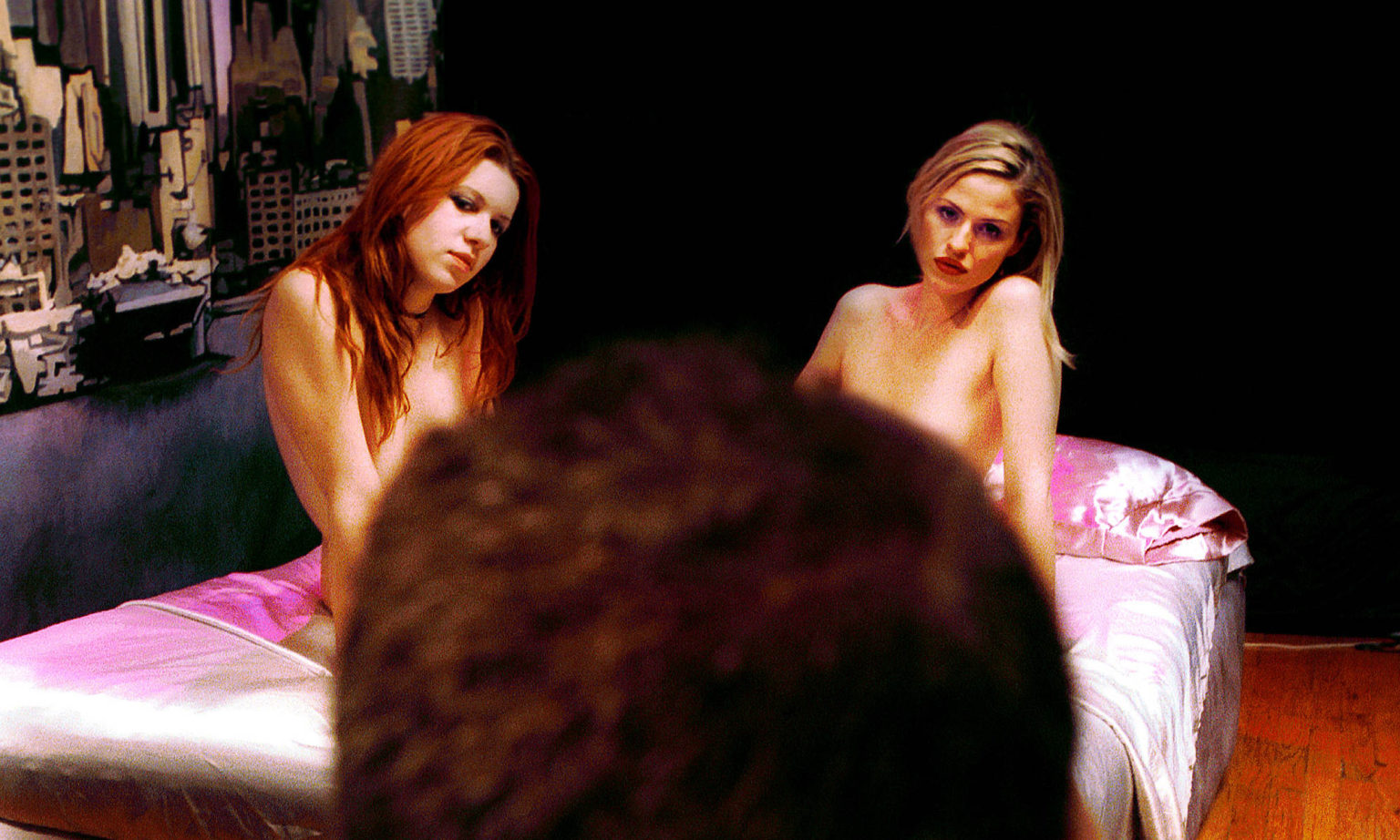
Long-read
No one should mourn the demise of OnlyFans
The industrialisation and normalisation of porn is a scourge on humanity.
If someone had told me 10 years ago that one day the BBC would be publishing sad-eyed, empathetic reports about the hardships facing pornographers, I would have thought them mad. And yet here we are, in 2021, with the public broadcaster lamenting the fact that ‘creators’ of porn have been given a ‘kick in the teeth’. In a piece about the changes being made to the OnlyFans website – which will soon be banning explicit porn – the BBC lends a sympathetic ear to people who make money from filming themselves wanking or having sex for the onanistic pleasure of an army of faceless, unknowable voyeurs. One of the ‘creators’ it speaks to – we don’t call them pornographers anymore, apparently – makes £4,000 a month from uploading images and films of him sexually pleasuring his boyfriend. And it is ‘disgusting’, he tells the clearly condoling BBC reporter, that he will soon be prevented from doing this.
There you have it. What’s ‘disgusting’ in 2021 is not porn, but being prevented from making porn. The really disgusting thing, apparently, is not switching on your webcam so that online losers can watch you get hard for 50 quid a pop, but the fact that a website says to you: ‘Sorry, you can’t do that anymore.’ The BBC isn’t alone in worrying how DIY pornographers will cope when OnlyFans switches off the explicit stuff. This ‘sanitisation’ of OnlyFans is ‘the latest in a long line of instances of internet censorship pushing sex workers to the margins’, cries the Guardian. Yes, the same Guardian whose painfully woke employees will harass you out of your job if you believe, as Suzanne Moore does, that people with penises are men will cry ‘Censorship!’ when men (and women, I guess?) are prevented from showing their penises to strangers on the internet for money.
The liberal elite’s concerned, caring response to the OnlyFans news is a striking sign of the times. No sooner had OnlyFans announced that hardcore uploads will be disallowed from October – primarily because its banking partners are clamping down on the kind of products that can be paid for through their services – than the woke media were rolling out reports and thinkpieces about how ‘disastrous’ this will be for ‘sex workers’. This confirms how normalised the porn industry has become. That the Beeb, the Guardian, academics and others can so openly worry about the fate of pornographers, and can use such transparently euphemistic words as ‘creators’ and ‘sex work’ to describe the provision of explicit material for wankers, confirms that porn is now viewed as an ordinary, fine and even healthy part of everyday life, as just another form of work. And that should concern everybody who believes that sex and human relations are important things, and that they they lose their meaning and moral vigour when they are reduced to grubby transactions.

Of course, there is an element of the OnlyFans controversy that is worrying to those of us who believe in internet freedom. OnlyFans has in recent years become the online capital of DIY porn. It has 130million users. These users (sorry but I’m not saying ‘creators’) build up a base of subscribers who will pay to view them in various states of undress and even having full-on intercourse. Users give 20 per cent of what they earn to OnlyFans and keep the rest for themselves. (Though it is irresponsible of the BBC and others to focus on users who make thousands of pounds a month. As the Spectator points out, the average user earns £120 a month.) That a website whose name has become a popular-culture byword for the sharing of salacious sexual material can be pressured by the capitalist elites to stop sharing salacious sexual material – that is, to overhaul its raison d’etre completely – is pretty shocking. It’s like Wetherspoons saying it will stop serving booze. What’s the point?
The financial elites are increasingly being called upon by cancel-culture mobs to starve iffy outlets of funds. Visa, PayPal, GoFundMe and others have used their capitalist clout to prevent the funding of writers and activists who have controversial views. The censorious snobs of Stop Funding Hate are forever calling on powerful corporations to stop advertising with media outlets they disapprove of, like a capitalist incarnation of the Stasi. So don’t pop the champagne corks just yet over the OnlyFans thing. It looks less like a victory for the healthy, humanist pushback against the relentless industrialisation of porn that we need, and more like another power grab by unaccountable financial elites over the weird, messy public square of the internet. However, at the same time as asking whether it’s a good thing that banks and credit-card companies can effectively dictate to people what they may do and show online, we also need to ask another question, possibly an even more important one: why is it now seen as normal and even good to make porn?
For those of us who grew up in an era when porn existed, of course, but was almost universally looked upon with disdain, today’s normalisation of porn is incredibly strange. Pre-internet, porn was a top-shelf phenomenon, a shameful pastime. I remember the surprise of seeing a family friend who lived miles away in my local corner shop. It was only when he hurriedly shoved a magazine on to one of the upper shelves that I twigged why he was there – to buy porn. People travelled miles to get a dirty mag without being spotted by a neighbour. Now people pose for sad photos with the actual public broadcaster as they tell us how disgusting it is that they can no longer have sex for cash. The shame has disappeared. ‘There’s this massive stigma [on sex work]’, the OnlyFans guy tells the Beeb. There isn’t, though. And that, precisely, is the problem. Rehabilitating the stigma on pornography and prostitution – or at least rehabilitating the moral judgement of these things as wrong – is, in my view, one of the important humanist challenges of our time.
What we have witnessed in recent years is the industrialisation and normalisation of pornography. The internet is saturated with porn. It has leaked into popular culture, too. From mega-hit ‘Wet Ass Pussy’ to Hollywood’s weird obsession with dramatising the lives of porn stars of the 70s and 80s, you can’t even switch on mainstream outlets these days without encountering the styles and language of the porn industry. Making any kind of dissenting noise about this ruthless monetisation of sexual intercourse is increasingly discouraged and even demonised. Today, the true stigma is not on ‘sex work’ but on those who criticise it, those who dare to call it prostitution, those who say it is not work and it is not good, either for the people who do it or the people who access it. The mindless mantra ‘Sex work is work’ is up there with ‘Trans women are women’ as one of the key dogmatist diktats of our time that you query at your peril.

The problem here is the dissassociation of sex from any kind of physicality, and, more importantly, from emotional intensity. Sexual gratification has become a function of alienation, pursued through a computer screen, at a distance. The pursuit of love, or just of feeling, has given way to the voyeuristic consumption of other people’s disembodied sexual performances for the narrow end of fleeting ejactulative pleasure. Both sides in this equation – it is not a relationship, however much the wankers try to kid themselves to the contrary – are degraded by this transactional process. The performers, the DIY pornographers, are incited to erase utterly the boundary between their private lives and their public life, to make a show of their intimacies for the momentary rapture of others. Turning one’s sexual life into a spectacle, into a show for subscribers, hollows out relationships and reduces intimacy to a commodity. And the other side – the onanists – are degraded by their own voyeurism, by their preference for safe, distant, anonymous self-pleasure over the risk and joys of physical and human engagement. People have always wanked, of course, but at least in the old days wanking was followed by feelings of squeamishness and shame. Now wanking is a way of life, heartily sanctioned by capitalism and the NHS.
Christopher Lasch pre-empted this divestment of emotion from sex. He saw it as part of a broader, late 20th-century ‘flight from feeling’. This ‘sexual separatism’ often poses as a bold, brave blow for freedom against the old confines of traditionalism, but in truth it is about control, he said – specifically, ‘controlling or escaping from strong feeling’. This was a keen insight on Lasch’s part – how ‘escape masquerades as liberation’, in this case ‘escape from emotional complexity’. The cultivation of sex without romance sounds progressive, he said, but it ‘masks a desire to divest [sex] of the emotional intensity that unavoidably clings to it’. Today, 40 years after Lasch’s observation, this phenomenon is on stilts. All around us, we see a retreat from feeling, a withdrawal from intimacy, a disavowal of the risks and pleasures of physical and human engagement, and it is always dressed up in the language of libertinism and progressiveness. The capitalist-enabled atomisation of person from person, to such an extent that now even sexual ‘interaction’ increasingly takes the form of a technical transaction, is always puffed up as a confident, independent embrace of sexual openness, when in truth it is about subduing strong feeling, controlling human engagement, and limiting the possibilities that flow from romance, chivalry and love.
‘Sex work is work’, they say. But it isn’t. That mantra demeans both sex and work. It divests sex of the morally renewing energy it possesses by including it within the narrow wage-labour relationship. And it transforms work from something we do into something we are, into an all-encompassing phenomenon that requires not only our time and our intellectual energy but our everything – our bodies, our intimacies, our loves, our fluids. There is something distinctly tragic in the fact that people entrapped in the industry of porn so mistakenly believe that they are free. Rejecting the industrialisation of sex in favour of returning to feeling will be a central task for all of us who are keen to recover humanity from the rapacious forces of capitalism, exploitation and fear. And this cannot be done without moral judgement. I’ll go first: pornography and prostitution are morally wrong. You should not partake in these wicked pastimes. Be better.
Brendan O’Neill is editor of spiked and host of the spiked podcast, The Brendan O’Neill Show. Subscribe to the podcast here. And find Brendan on Instagram: @burntoakboy
Pictures by: Getty Images
To enquire about republishing spiked’s content, a right to reply or to request a correction, please contact the managing editor, Viv Regan.








Comments
Want to join the conversation?
Only spiked supporters and patrons, who donate regularly to us, can comment on our articles.